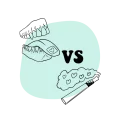Consciousness Exploration: Unlocking the Mind Through Psychedelics and Inner Awareness
Consciousness exploration research has emerged from the outskirts of mysticism and esotericism into the mainstream of psychology, science, and wellness in recent years. The ability of substances like psilocybin, LSD, DMT, and ayahuasca to produce altered states of consciousness and promote deep self-awareness is being reexamined in light of the renewed interest in psychedelic research.
No longer limited to spiritual seekers, this in-depth exploration of the human mind is now the focus of peer-reviewed research, mindfulness exercises, and therapeutic approaches meant to promote mental health, trauma healing, and personal development.
What is Consciousness Exploration?
Exploring various levels of awareness, perception, and being is referred to as consciousness exploration. This could include sensory deprivation, breathwork, lucid dreaming, meditation, or, more lately, hallucinogenic experiences.
Introspection—the discovery of hidden ideas, the comprehension of behavioral patterns, and the meeting with one’s actual self beyond ego, training, and trauma—rather than escape is the aim.
The Role of Psychedelics in Consciousness Expansion
Psychedelics are psychoactive drugs that change mood, perception, and thought processes. These drugs, which were once employed in shamanic and religious ceremonies, are currently being researched for their effects on neuroplasticity and consciousness.
Key psychedelics linked to consciousness exploration include:
- Psilocybin Mushrooms: Known for generating mystical-type experiences, ego dissolution, and emotional catharsis. LSI keywords: magic mushrooms, serotonin receptors, inner healing.
- LSD (Lysergic Acid Diethylamide): Often associated with visual hallucinations, time dilation, and enhanced creativity. LSI keywords: acid trip, cognitive flexibility, psychedelic therapy.
- DMT (Dimethyltryptamine): Sometimes called the “spirit molecule” for its ability to induce vivid, otherworldly visions. LSI keywords: breakthrough experience, pineal gland activation, shamanic journey.
- Ayahuasca: A traditional Amazonian brew with DMT and MAOIs, often used in guided ceremonies. LSI keywords: plant medicine, soul retrieval, guided journey.
The default mode network (DMN) in the brain, which controls our sense of self and automatic cognitive patterns, seems to be “turned off” by these drugs. By upsetting this network, psychedelics facilitate an ego-death experience, leading to revelations that are beyond rational comprehension.
Meditation, Breathwork, and Non-Substance Paths
Although they provide strong entry points into awareness, psychedelics are not the sole means. To naturally access altered states, many practitioners practice yoga, meditation, and holotropic breathwork. Without consuming any drugs, these methods can provide comparable sensations of transcendence, clarity, and togetherness.
- Meditative Absorption (Samadhi): Achieved through prolonged mindfulness or focus, this state is characterized by profound peace and ego dissolution.
- Lucid Dreaming & Astral Projection: Altered states during sleep or deep rest can provide a gateway to subconscious patterns and symbolic awareness.
- Sound Therapy & Binaural Beats: These can stimulate theta brain waves, promoting introspection and creative visioning.
LSI keywords: inner journey, third eye activation, altered states without drugs, mindfulness and awareness.
The Science of Consciousness and Neuroplasticity
The potential of psychedelics to “rewire” the brain is showing promise when used sensibly and under supervision. The brain’s capacity to create new neural pathways is known as neuroplasticity. This is essential for addressing disorders like anxiety, addiction, PTSD, and depression, which are frequently caused by inflexible, pessimistic thought patterns.
Even a single guided psychedelic session can have long-lasting impacts on mood, empathy, and openness to experience, according to research from universities like Johns Hopkins and Imperial College London.
LSI keywords: neurogenesis, trauma healing, mental health breakthroughs, psychedelics and the brain.
Conscious Integration: Making Sense of the Experience
Integration—the process of incorporating the knowledge gained from an altered experience into daily life—is one of the most neglected facets of consciousness study. Even the most impactful journey can become a memory without bringing about significant change if it is not integrated.
Techniques for integration include:
- Journaling and dream analysis
- Somatic therapy or trauma-informed coaching
- Community sharing circles or psychedelic peer support groups
LSI keywords: psychedelic integration coach, mindful reflection, spiritual growth, life after ego death.
Ethical, Legal, and Personal Considerations
Psychedelics have risks even though their benefits are being verified more and more. Respect, planning, and the right environment are essential while using these instruments. Particularly for those with a history of bipolar disorder or psychosis, not everyone is psychologically prepared for acute moments of awareness.
Moreover, legality differs throughout the world. While DMT and LSD are still classified as Schedule I drugs in the majority of countries, psilocybin is decriminalized in some American cities.
LSI keywords: trip sitter, legal psychedelics, harm reduction, safe usage practices.
Final Thoughts: Consciousness Is the Final Frontier
In an increasingly digitally noisy and externally driven society, the inward path of consciousness inquiry provides something uncommon: truth, connection, and serenity. Examining oneself, whether via psychedelics, meditation, or breathing, is a radical act of present rather than escape.
Because the mind is a cosmos, it is not a prison. And we may uncover it, layer by layer, with the use of tools like psychedelics and conscious awareness when we approach it with intention.

